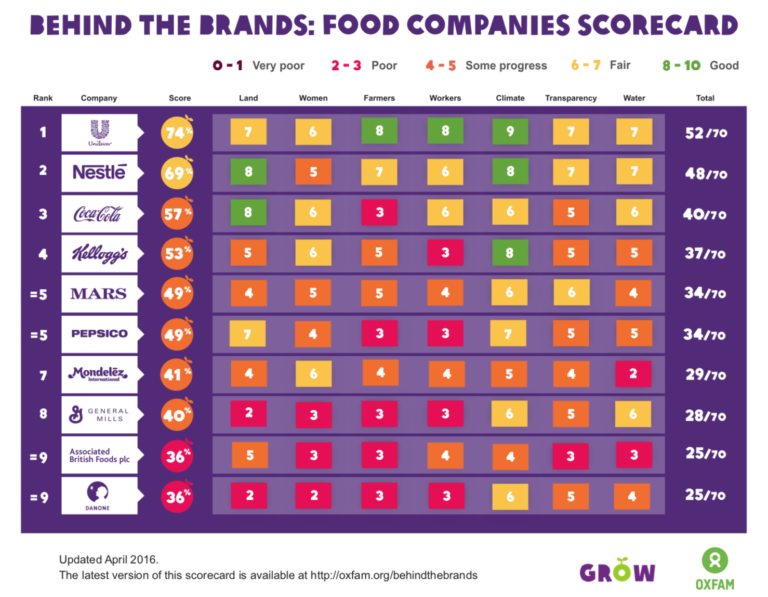The Behind the Brands Scorecard assesses the agricultural sourcing policies of the world’s ten largest food and beverage companies. It exclusively focuses on publicly available informa- tion that relates to the policies of these companies on their sourcing of agricultural commod- ities from developing countries.
The initiative based its selection on companies with the largest overall revenues globally, as well as their position in the Forbes 2000 annual ranking, which measures companies on the basis of composite sales, assets, profits and market value.
The ten companies assessed in the Scorecard (in order of company size) are Nestle, PepsiCo, Unilever, Mondelez, Coca-Cola, Mars, Danone, Associated British Foods, General Mills and Kellogg’s.

